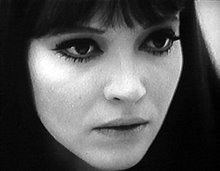
Another thing that students can do before we watch Memento this coming Tuesday is read through some material on the director and his film. The wikipedia entry on Nolan is good, and here are two good interviews with him: one with the BBC, and one found on the Indiewire website. In the latter, Nolan discusses the generation of the "seed story" used by both him and his brother for narratives in different media:
"...my brother told me the concept when he was writing the story. He told it to me while we were driving from Chicago to LA, across country. And I was like great, can I go and write a screenplay for this while you write the story? Because he'd been doing draft after draft and in fact it took him another two years. As we were finishing the film, he was finishing his final draft of the short story.
We had decided that in our own ways we were going to try and tell the story in the first person. Me in film and him in a short story. We're both trying to escape the boundaries of the particular medium that we're choosing to tell, because we really want to create an experience that doesn't feed into your head, that bleeds around the edges. I was going for something that lived in its own shape, that was slightly built from that standard linear experience. My brother in the same way, in writing the story, had wanted to randomize it somehow. Like he's done the web site, [www.ontnemem.com] and that's in an electronic form."
Of interest here is Nolan's assertion that both he and his brother originally wanted to tell their stories in first person---of course, what they both eventually ended up with is something significantly more than a simple first person narrative...
Students should also check out this article by Andy Klein from Salon.com. Klein does a good job describing, as opposed to analyzing, the film's narrative structure. He has a good grasp of how the film is doing more than just using a reverse linear narrative. However, I think he gets horribly bungled up when he confronts the issue of "closure." Klein wants it all to "make sense" according to an internal logic, which in large part, both Klein and I agree it does. Where we part is over the idea that there is a single answer:
"Is there an answer? I don't know. Christopher Nolan claims there is one. In an article in New Times Los Angeles on March 15, Scott Timberg writes: "Nolan, for his part, won't tell. When asked about the film's outcome, he goes on about ambiguity and subjectivity, but insists he knows the movie's Truth -- who's good, who's bad, who can be trusted and who can't -- and insists that close viewing will reveal all."
But, at this point, I no longer believe him."
I think Klein for all his sensitivity to the layers of non-linearity in the film is still limited by the assumption that there is to be discovered some final perspective from which every contradictory detail makes sense. He doesn't seem to be able to think in different conceptual terms: that the film may be encoded with some puzzles that it does eventually offer solutions for and yet still resist a final authoritative Truth seems incomprehensible to him. Perhaps he is misled by what also seems to me a simplistic analysis in the New Times Los Angeles. I don't think Nolan would ever claim the film endorses the idea of a singular, capital T, authoritative truth. I suspect journalist Scott Timberg has also misunderstood whatever it was Nolan told him.
































No comments:
Post a Comment